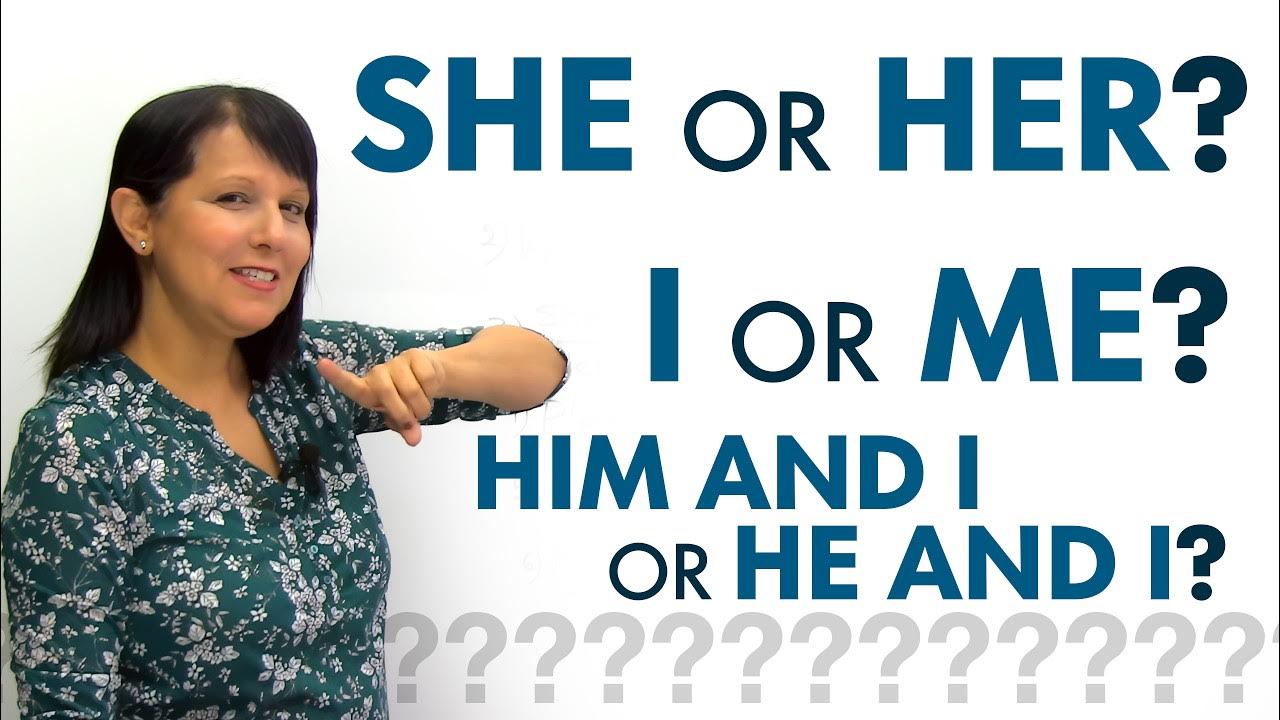5 common English speaking mistakes that celebrities make
Summary
TLDRThe video highlights common mistakes made by English learners, even by advanced speakers. It covers 10 frequent errors, such as misusing 'too' for negative expressions, the incorrect use of 'me' with 'according to,' and confusion between 'I' and 'me' in sentences. The video also addresses past tense mistakes, such as using 'meant' incorrectly and misusing 'passed out' to describe graduation. Through practical examples and explanations, the speaker aims to help viewers avoid these errors and improve their English fluency.
Takeaways
- 😀 Avoid using 'too' for both positive and negative situations. Use 'too' for negative aspects (e.g., 'The place was too crowded') and 'so' or 'very' for positive aspects (e.g., 'This coffee is so good').
- 😀 The phrase 'according to me' is incorrect. Instead, use 'in my opinion' or 'I think' to express personal viewpoints.
- 😀 Understand the difference between 'I' and 'me'. Use 'I' as the subject (the one doing the action) and 'me' as the object (the one receiving the action).
- 😀 When using the simple past tense, do not change the verb after 'did' or 'didn't'. For example, say 'I didn't mean that' instead of 'I didn't meant that'.
- 😀 The phrase 'passed out' means to faint, not to graduate. Use 'graduated', 'finished', or 'completed' to refer to completing education.
- 😀 'Too' indicates excessiveness and is often used for negative situations, while 'so' and 'very' are for positive situations.
- 😀 Instead of saying 'according to me', say 'according to someone else' or use phrases like 'in my opinion' to make your statements grammatically correct.
- 😀 When expressing an opinion based on someone else’s, use 'according to' + their name/position, not 'according to me'.
- 😀 Recognize that past forms like 'did' already indicate the past tense, so don't add a past tense verb after it.
- 😀 Be mindful of the usage of common phrases. For instance, 'the place was too crowded' should not be mixed with 'the place was so crowded' unless referring to a positive feature.
Q & A
What is the common mistake related to the use of 'too' and 'so' in English?
-The mistake is using 'too' when referring to something positive. 'Too' should be used to express something negative, while 'so' or 'very' should be used for positive aspects.
How can 'too' and 'so' be used correctly in sentences?
-'Too' is used when referring to something negative, for example, 'The place was too crowded.' On the other hand, 'so' or 'very' is used for positive aspects, such as 'This coffee is so good.'
What mistake is commonly made with the phrase 'according to'?
-A common mistake is using 'according to' with 'me.' 'According to' should always be used to express someone else's opinion, not one's own. For personal opinions, one should use phrases like 'in my opinion' or 'I think.'
What is the correct way to express someone's opinion in English?
-When expressing someone else's opinion, use 'according to.' To express your own opinion, use 'in my opinion' or 'I think.'
What is the difference between 'I' and 'me' in English?
-The difference lies in the role each word plays in a sentence. 'I' is used as the subject (the doer of the action), and 'me' is used as the object (the receiver of the action).
How can you determine whether to use 'I' or 'me' in a sentence?
-Use 'I' when you are the doer of the action (subject) and 'me' when you are the receiver of the action (object). For example, 'My friend and I went to the park' (I is the doer), but 'My friend invited me to the park' (me is the receiver).
What is the mistake made with the phrase 'I didn't mean it'?
-The mistake is using the word 'meant' in incorrect contexts. When using 'did' or 'didn't' in the past tense, the base form of the verb should be used, such as 'I didn't mean it' instead of 'I meant it.'
How should we use 'pass out' correctly in English?
-'Pass out' means to faint or lose consciousness. It is often mistakenly used to mean graduating or completing something. Correct alternatives to 'pass out' for graduation include 'I graduated' or 'I completed my studies.'
What is the correct way to talk about graduating from college in English?
-Instead of using 'pass out' to describe graduation, use 'I graduated from college,' 'I completed college,' or 'I finished high school' for clearer communication.
What are the five common mistakes people make in English according to the transcript?
-The five common mistakes are: 1) Misusing 'too' and 'so', 2) Using 'according to' with 'me', 3) Misusing 'I' and 'me', 4) Using the incorrect form of verbs with 'did' in past tense, and 5) Misusing 'pass out' for graduation.
Outlines

Dieser Bereich ist nur für Premium-Benutzer verfügbar. Bitte führen Sie ein Upgrade durch, um auf diesen Abschnitt zuzugreifen.
Upgrade durchführenMindmap

Dieser Bereich ist nur für Premium-Benutzer verfügbar. Bitte führen Sie ein Upgrade durch, um auf diesen Abschnitt zuzugreifen.
Upgrade durchführenKeywords

Dieser Bereich ist nur für Premium-Benutzer verfügbar. Bitte führen Sie ein Upgrade durch, um auf diesen Abschnitt zuzugreifen.
Upgrade durchführenHighlights

Dieser Bereich ist nur für Premium-Benutzer verfügbar. Bitte führen Sie ein Upgrade durch, um auf diesen Abschnitt zuzugreifen.
Upgrade durchführenTranscripts

Dieser Bereich ist nur für Premium-Benutzer verfügbar. Bitte führen Sie ein Upgrade durch, um auf diesen Abschnitt zuzugreifen.
Upgrade durchführenWeitere ähnliche Videos ansehen

Aggettivi possessivi in inglese

The Biggest Grammar Mistakes I’ve Seen in 10 Years of Teaching

Confusing Subject & Object Pronouns: HE or HIM? I or ME? SHE AND I or HER AND I...?

Why Your Brain Freezes When Speaking English

20 Common English Speaking Mistakes You're Making But Aren't Aware Of! Improve Spoken English

Why you can't speak English
5.0 / 5 (0 votes)
